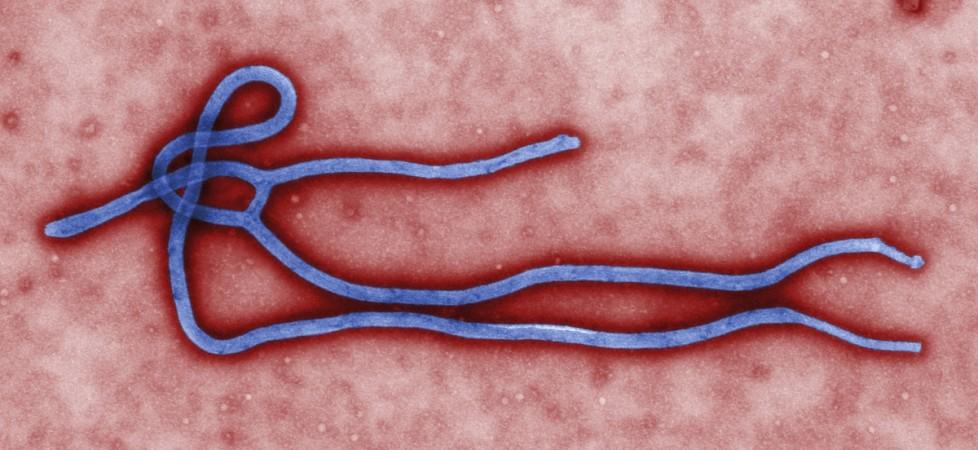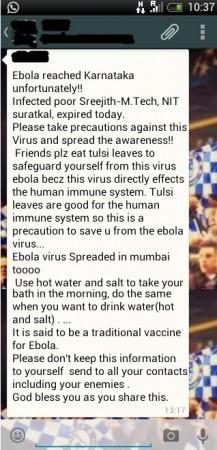
There has been a message doing the rounds on social media platform WhatsApp that a student from Mangalore, Karnataka, died after he contracted the deadly Ebola virus. Karnataka Health Minister UT Khader rubbished these rumours and said that legal action would be taken against those who originated it.
The message seems to have gone viral on the mobile application platform WhatsApp, with people forwarding it without getting proper verification. Khader expressed his concern over how unsubstantiated reports like these could cause mass panic in the country and disrupt day-to-day life.
"This is not the first time that online platforms have been used to create fear, unrest and unnecessary apprehension among the public," Khader told The Indian Express. "We have decided to investigate and take action against persons spreading such false rumours."

The Health Minister of the state of Karnataka also said that his ministry is looking to file a suo-moto criminal case against the miscreants.
A suo-moto case is a case where a court may, on its own, go ahead with legal proceedings without the presence of the offending or the prosecuting party.
The person identified in the message is a student of National Institute of Technology Karnataka (NITK) , named Sreejith, and he was indeed, pursuing his M. Tech degree at the institute. However, Sreejith had never contracted the Ebola virus. He had in fact, succumbed to a lung infection. Sreejith, who was also a state-level badminton player, died because his lung infection was diagnosed at a very advanced stage.
"It is true that a person identified as Sreejith who was pursuing an M. Tech degree at NITK expired last month but it was from a lung related ailment and not the Ebola virus," said Shiva Kumar, the District Health Officer (DHO).
"An Ethiopian student in the institute who is being rumoured to have been infected with Ebola has not travelled to his native country for the past two years. All the messages on social media of the spread of the Ebola virus at the institute are baseless."
Other than the rumour about the student from Mangalore, the message also says that the Ebola virus has spread in Mumbai. Though, there was a suspected case of the Ebola virus in Mumbai, last week, the man, who had admitted himself to the hospital, was later released as he tested negative for the virus.
Tips to Avoid Ebola in the Message also False
The message urges the readers to regularly consume Tulsi leaves, in order to avoid contracting the Ebola virus. Although tulsi leaves are considered to have healing properties, it has not been proven to be a cure for the virus. In fact, the Ebola virus has no known cure. A couple of experimental vaccines have been developed by the governments of USA and Canada, but they are still in clinical trials.
The message also says that bathing in hot salt water helps prevent contracting the Ebola virus. It even goes on to ask the readers to drink hot salt water. Drinking more salt water would lead to an increase in the blood pressure, and may also lead to the formation of kidney stones in people who are prone to the condition.
The Ebola virus has killed 1,229 people in the four West African countries of Guinea, Liberia, Sierra Leone and Nigeria. More than 2,000 people have contracted the virus in these four nations.
So how does one protect oneself from the Ebola virus? Experts say that there's no particular way to avoid it, but maintaining general hygiene could go a long way to help prevent contracting the virus.
Simple things like avoiding unfamiliar handshakes, drinking water from a clean source, washing ones hands frequently, are all steps by which the contraction of the Ebola virus could be averted.

















